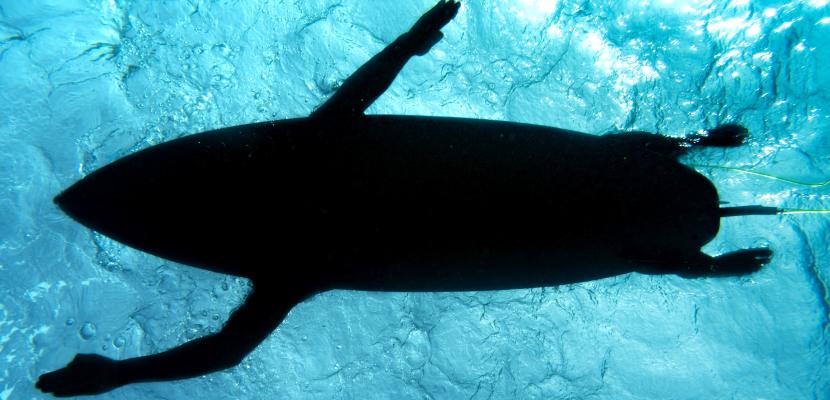
There has been a five-fold increase in the number of people bitten by sharks in NSW since 2000 and most victims are surfers in the north of the state, with a new study suggesting they take protective measures including wearing puncture-resistant wetsuits.
Researchers including Associate Professor Daryl McPhee of Bond University examined 196 unprovoked interactions between sharks and humans in NSW from 1900 to June 2022, 34 of which were fatal.
They found the annual bite rate remained stable at 0.6 until 2000 when it jumped to 3.2 per year.
There was also a shift in where bites occurred – from the metropolitan area covering Sydney, Newcastle and Wollongong to mainly on the Far North and Mid North coasts from the Queensland border to Port Stephens.
The profile of victims changed too. From 1900 to 1959, swimmers made up 80 percent of those bitten but since 1980 surfers have borne the brunt (79 percent), and beaches in the Far North were the scenes of 58 percent of bites on surfers.
The researchers noted the rising incidence of surfers being bitten reflected the increasing popularity of the sport since it was first introduced to Australia at Freshwater Beach in 1914, with around 2.5 million board-riders in the country today.
They said the rising number of shark bites was likely due to a range of factors including changes in beach use over time and did not necessarily reflect an increase in the risk of being bitten.
The study found no indication that shark nets prevented the likelihood of being bitten.
Dr McPhee, an environmental scientist and shark expert, said there was no single reason for the increase in shark bites in NSW but greater numbers of people venturing into the water was a significant factor.
He said the jump in shark interactions in the north of the state was not unusual.
“We do get clusters of bites in one region in a relatively short amount of time.
“We are currently seeing that in South Australia and Mexico and we have previously seen that in Western Australia and in Queensland at the Whitsundays.”
The researchers proposed a new approach to shark bite mitigation termed the “three Ps” – Perimeter, Proximity and Prevent bleeding.
Perimeter involves physically separating humans and sharks (for example, swimming enclosures); reducing local shark populations with beach meshing and culls; using early warning systems such as SMART drumlines and aerial surveillance; or changing human behaviour (for example, avoiding times and locations with a high probability of sharks).
Proximity involves deterring an approaching shark from biting. Several types of shark deterrent are available, including electric, magnetic, olfactory, and visual deterrents.
Prevent bleeding aims to reduce injuries from shark bites. This can be achieved by wearing puncture and tear-resistant wetsuits which are beginning to appear on the market.
While crushing injuries, skin punctures, and lacerations are still possible, these protective wetsuits can help reduce blood loss, providing more time for medical aid.
Dr McPhee said there were simple steps swimmers and surfers could take to reduce the likelihood of encountering sharks.
“The most important thing water users can do is if you are a swimmer, swim between the flags,” he said.
“For other water users, be aware of your surroundings. Avoid river mouths after significant rainfall as the risk of a bull shark bite is heightened.
“Avoid murky water, and avoid concentrations of baitfish or whale or dolphin carcasses.”